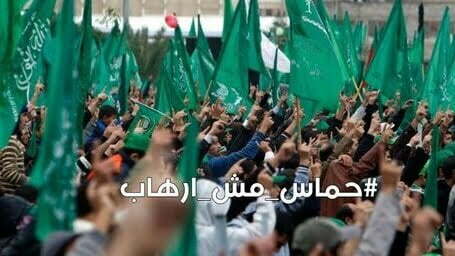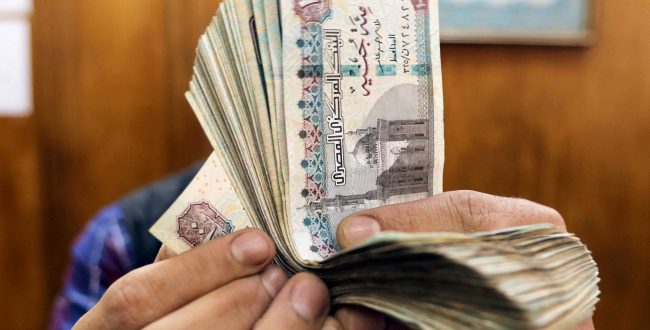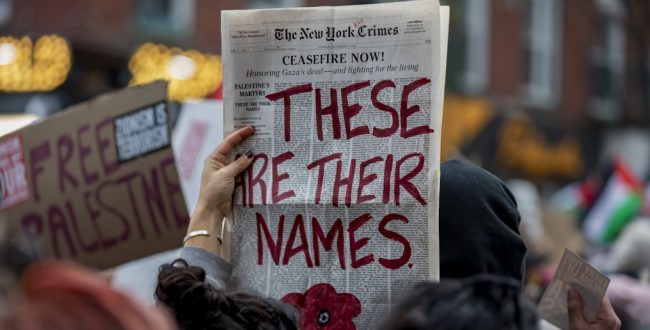Earlier this week, President Trump delivered a speech in front of dozens of leaders from Arab and Muslim nations in Riyadh. In this speech, he articulated for the first time the principals of his administration’s policy towards the Middle East. At the center of this policy is an uncompromising struggle against Islamist terrorism (even if Trump avoided using the phrase “radical Islamic terrorism”, as he had done so extensively throughout his campaign). Trump demanded from his audience to “drive out the terrorists and extremists” from their communities and places of worship and to “take on the burden” of fighting terrorism as part of a joint effort with the United States.
Trump lumped together “ISIS, al-Qaeda, Hezbollah, Hamas, and so many others [terrorist organizations]”, which seemed to fit the agenda of Egyptian President Abdel Fattah el-Sisi, who was present in the audience and complimented Trump before he delivered his speech. Sisi is waging an aggressive battle against political Islam since the coup d’état against the Morsi government in 2013, and four years ago designated the Muslim Brotherhood in Egypt as a terrorist organization.
Trump’s statement marks a significant change from the position undertaken by the Obama Administration regarding Islamist groups. Hamas has been designated by the US State Department as a Foreign Terrorist Organization since 1997, and Obama also defined it as a terrorist organization before his election to the White House in 2008.
However, after the events of the Arab Spring Obama and then-Secretary of State Clinton distinguished between Islamist movements such as the Muslim Brotherhood and Hamas and radical organizations such as ISIS and al-Qaeda, and strongly promoted the former as a “firewall” against the latter. In addition, while the Trump Administration considered designating the Muslim Brotherhood as a terrorist organization in the first few weeks after taking office, Obama consistently refused to do so during his presidency.
From Hamas’ perspective, Trump’s words are very bad news, as they could strengthen the international isolation in which the group has found itself during the last few years. The Twitter account of al-Aqsa TV Channel, which is affiliated with Hamas, quickly responded to Trump’s speech by posting a photo of Palestinian activists carrying the movement’s flags with the hashtag “Hamas isn’t a terrorist [organization]” (#حماس_مش_ارهاب) at the center.
Hamas’ use of this hashtag isn’t new, and fits the movement’s self-definition as a “resistance” (muqawama) organization to Israel, which is perceived by it as a legitimate right in its struggle against the Israeli occupation, and not as a terrorist organization. Hamas’ official Twitter account in English also twitted a message which stated that “Trump’s designation of Hamas as a terrorist organization is biased and comprises with the Israeli Occupation’s policies”, and its English-language Website issued a press release which described Trump’s message as “a hostile message aiming to split the Islamic nation.”
During the last few months, Hamas has been trying to present to the world a moderate and pragmatic image, in order to ease the regional pressures in which the movement has found itself and improve its political standing in Palestinian public opinion. Earlier this month, the movement published its new Document of General Principles and Policies, which agrees to recognize “a Palestinian state, with Jerusalem as its capital along the lines of the 4th of June 1967” and distinguishes between “Zionists” and “Jews” in its armed struggle against Israel, in an attempt to distance the movement from the anti-Semitic motifs which characterized its Charter in 1988.
Fawzi Barhoum, a Hamas spokesman in Gaza, recently claimed that “the document gives us a chance to connect with the outside world. To the world, our message is: Hamas is not radical. We are a pragmatic and civilized movement.” Despite this rationale behind Hamas’ new document, Trump’s speech in Riyadh, which lumps together ISIS and Hamas as part of the same “foot soldiers of evil” and enemies of “decent people of all religions who seek to protect life”, doesn’t acknowledge Hamas’ declared pragmatism and the more moderate image which the movement has adopted. Trump’s speech before dozens of religious and political leaders from Arab and Muslim nations is therefore a strong rejection by the international community of Hamas’ attempts to win international legitimacy.
Even if states such as Qatar (where the former head of Hamas’ political bureau, Khaled Mashal, resides) support Hamas and allow it political maneuvering space, Hamas’ mission will be more difficult from now on. Furthermore, despite the fact that Hamas’ terrorist designation by the Trump Administration is extremely convenient for Israel in its battle for global public opinion, this label could hamper future efforts by Trump to advance an Israeli-Palestinian peace agreement.
Hamas’ pragmatism indicates an increasing willingness of the movement to work with the international community, and thus gives the West additional incentives in its dealings with Hamas. Furthermore, presenting Hamas as part of the same radical milieu of ISIS and al-Qaeda could damage the pragmatic current in the movement and encourage the more militant current within it to renew the violence against Israel from the Gaza Strip.
Translator: Michelle Bubis

















